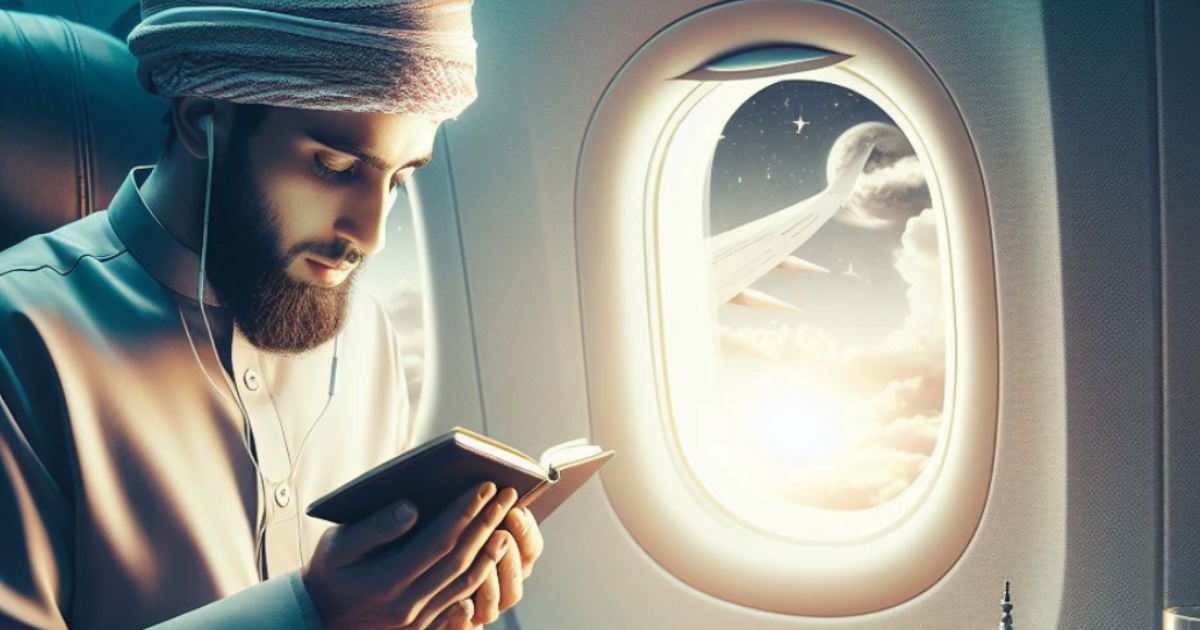Traveling during Ramadan, the holy month of fasting in Islam can present unique challenges. Yet, it can also be a transformative experience, offering opportunities to connect with your faith and explore new cultures. By embracing a proactive approach, you can navigate the journey with ease and maintain your fasting routine while on the move.
This article delves into practical tips for fasting while traveling in Ramzan and essential considerations to ensure a meaningful Ramadan experience. We’ll explore strategies for planning and preparation, adjusting meal times, and managing energy levels, along with valuable insights on respecting local customs and maintaining spiritual focus. Whether you’re a seasoned traveler or embarking on your first Ramadan journey abroad, this guide will provide you with the information and resources to navigate through, challenges and embrace the blessings of Ramadan wherever you may roam.
However, with some planning and helpful strategies, maintaining your fasting routine while on the move is entirely possible. Here are some practical tips to help you navigate the journey, along with additional information and frequently asked questions:
Planning and preparation

- Flight Timing – Choose flights departing after iftar (the evening meal breaking the fast) and arriving before sahur (the pre-dawn meal). This time minimizes the fasting window during travel and avoids the awkwardness of in-flight meals while fasting. However, understand that this might only sometimes be feasible.
- Research Your Destination – Look for Muslim communities, mosques, and restaurants offering iftar meals at your destination. So this can ensure access to resources and support during your travels. Resources like websites and travel apps catering to Muslim travelers can be helpful for extensive research. Consider contacting local mosques or Muslim organizations in advance to inquire about available resources and prayer times.
- Pack Smart – Pack light, comfortable clothing appropriate for the local culture and weather. Choose breathable materials that will help you stay comfortable, especially if you are traveling in a hot climate. Additionally, consider bringing essentials like prayer rugs, travel-sized toiletries, a water bottle, and a Quran or prayer book.
- Download Apps – Utilize mobile apps like “Muslim Pro” or “Salatuk” to stay updated on prayer times, locate nearby mosques, and find halal (permissible) restaurants. These apps often offer additional features like Qur’an recitations and Qibla direction, which can be helpful while traveling.
Adjusting meal times
- Break Fast Wisely – Opt for light, hydrating foods like dates and fruits to gently rehydrate your body after a long day of travel. Gradually transition to a balanced meal after your stomach adjusts. Steer clear of sugary beverages and processed foods, as they may lead to a subsequent sugar crash.
- Prepare for Sahur – Pack portable, non-perishable food items like nuts, granola bars, energy bites, and dried fruits for sahur, especially if you need more pre-dawn dining options at your destination. Consider packing a small travel kettle if you require hot tea or instant soup water.
- Maintain proper hydration – Maintain proper hydration, as dehydration can pose a significant issue. In particular, be cautious about dehydration, as it can pose a significant issue in hot climates. Make sure to pack a water bottle and prioritize hydration during non-fasting hours. Bring a reusable water container for refilling, and avoid generating plastic waste. Consider purchasing water purification tablets if traveling to regions with questionable water quality.
- Be flexible – Understand that your usual meal schedule might need adjustments due to travel delays, changing time zones, or unforeseen circumstances. Be prepared to adapt your sahur and iftar timings as required. Remember, the essence of fasting lies in the intention and effort, so remain flexible and adaptable during your travels.
Managing Energy Levels
- Prioritize rest – Get enough sleep before travel and during your trip. Fatigue can exacerbate feelings of hunger and thirst. Aim for a consistent sleep schedule as much as possible, even if it means adjusting your usual bedtime or wake-up time slightly.
- Limit strenuous activities – Plan your itinerary with your fasting in mind. Opt for leisurely activities like sightseeing, visiting museums, or strolling through local markets. Avoid physically demanding tasks like hiking, trekking, or extensive physical excursions during fasting hours.
- Listen to your body – Pay close attention to your body’s signals. Break your fast if you are experiencing extreme fatigue, dizziness, or illness. Remember that prioritizing your well-being is crucial. If you feel unwell, don’t hesitate to end your fasting period and seek medical assistance if needed.
Additional Considerations
- Respect Local Customs – Be mindful of local food and drink consumption customs during Ramadan, especially in public spaces. Avoid eating or drinking openly in public areas, especially if it is considered disrespectful or offensive. Dress modestly and respectfully, adhering to local cultural norms.
- Communicate Openly – Inform travel companions and hosts about your fasting schedule to ensure you understand everything. Explain your limitations politely, and appreciate their understanding and support.
- Maintain Spiritual Focus – Pack prayer rugs and Qurans for prayer breaks during travel. Consider portable prayer mats for airports or other locations where finding a designated prayer space might be challenging. Utilize mobile apps or printed prayer schedules to stay updated on prayer times at your destination.
Conclusion
Traveling during Ramadan can be a rewarding experience that deepens your connection to your faith, even amidst the challenges.
By being proactive, flexible, and mindful of practicalities and spiritual needs, you can embark on a fulfilling journey while observing the holy month. Embrace the opportunity to experience different cultures and traditions while remaining committed to your spiritual growth and practices.
References-
- Holiday Tours & Travel. (2023, May 17). Ramadan Travel: 15 Top Tips for an Enjoyable Holiday. https://www.holidaytourstravel.com